
In Study 2 of the Phase III UP-AA trial, upadacitinib 15 mg and 30 mg met primary and secondary endpoints for scalp hair regrowth in patients with severe alopecia areata.

In Study 2 of the Phase III UP-AA trial, upadacitinib 15 mg and 30 mg met primary and secondary endpoints for scalp hair regrowth in patients with severe alopecia areata.

In this video interview, Michael Miller, chief operating officer at Quanterix, highlights neurology and oncology as two therapeutic areas experiencing major advances from biomarker integration, from blood-based diagnostics in Alzheimer’s to multiomic strategies in cancer research.

The application is backed by Phase III AMPLIFY trial results showing the oral combination significantly improved progression-free survival versus chemoimmunotherapy in previously untreated chronic lymphocytic leukemia.

The submission is supported by Phase IIIb APEX trial results showing Tremfya reduced symptoms and inhibited structural progression in biologic-naïve patients with active psoriatic arthritis.

In this video interview, Michael Miller, chief operating officer at Quanterix, discusses how the use of biomarkers is expanding beyond exploratory endpoints to inform efficacy and patient selection, driving improved outcomes and greater efficiency in clinical research.

Sun Pharma’s INSPIRE-1 and INSPIRE-2 studies met their primary endpoint at Week 24, with Ilumya 100 mg demonstrating superior efficacy over placebo in treating active psoriatic arthritis.
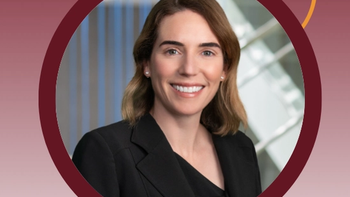
In this video interview, Kate Gallin Heffernan, life sciences attorney at Epstein Becker Green, advises clinical research organizations to assess their portfolios, diversify funding sources, and strengthen industry-academic partnerships to maintain compliance and continuity amid shifting federal priorities.

Complete Response Letters recently issued by the FDA signal heightened scrutiny of trial design and reinforce the agency’s shifting regulatory expectations for sponsors and CROs.
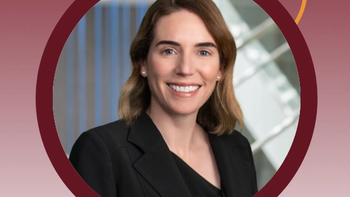
In this video interview, Kate Gallin Heffernan, life sciences attorney at Epstein Becker Green, advises clinical research teams to closely scrutinize federal fund certifications and document good-faith compliance efforts, even when policies stem from nonbinding executive orders.

Astegolimab met its primary endpoint in the Phase IIb ALIENTO trial with a 15.4% reduction in annualized exacerbation rate at 52 weeks, while the Phase III ARNASA study showed a 14.5% reduction and did not meet the primary endpoint.
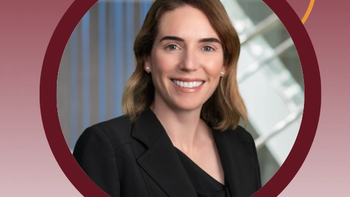
In this video interview, Kate Gallin Heffernan, life sciences attorney at Epstein Becker Green, explains how clinical research teams can accurately report on diversity-related grant work while minimizing exposure to False Claims Act scrutiny, by focusing on precise language and framing.
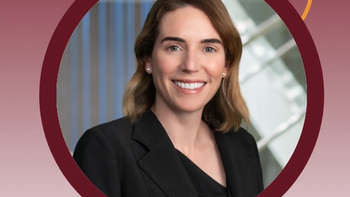
In this video interview, Kate Gallin Heffernan, life sciences attorney at Epstein Becker Green, outlines how even unenforced executive orders can influence federal funding decisions, prompting sponsors and sites to alter public trial messaging to avoid informal scrutiny.

New long-term data from the Phase III FLAURA2 trial confirm that Tagrisso combined with chemotherapy delivers a significant overall survival benefit over monotherapy in patients with advanced EGFR-mutated non-small cell lung cancer.
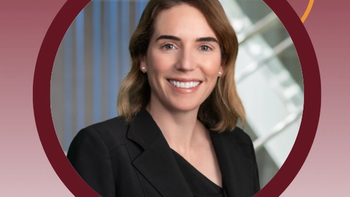
In this video interview, Kate Gallin Heffernan, life sciences attorney at Epstein Becker Green, explains how recent executive orders are creating uncertainty around compliance for clinical research teams receiving federal funding, and why staying alert to agency interpretation is key.

Viatris reported that its MR-139 ophthalmic ointment failed to meet its primary endpoint in a Phase III blepharitis trial, while advancing its MR-141 and MR-142 candidates in presbyopia and night vision impairment with positive late-stage results.

New data from the VOLITION study reveal that 89% of treatment-naïve individuals with HIV chose to switch to long-acting cabotegravir and rilpivirine after achieving viral suppression with oral DTG/3TC, with real-world evidence further supporting its effectiveness across diverse populations.

In this video interview, Ramita Tandon, chief biopharma officer at Walgreens, outlines her five-year vision for community-based research, calling for deeper industry alignment, infrastructure expansion, and patient-first design principles.

In the Phase III CARES trials, anselamimab did not meet the primary endpoint for advanced-stage AL amyloidosis, but a prespecified subgroup analysis revealed meaningful improvements in survival and cardiovascular outcomes.

In this video interview, Ramita Tandon, chief biopharma officer at Walgreens, offers practical insights for sponsors and CROs exploring partnerships with retail research sites, emphasizing collaboration, innovation, and shared accountability.

Interim Phase IIb data from the SURVIVE trial support continued evaluation of SurVaxM, a survivin-targeting vaccine, in newly diagnosed glioblastoma and other tumor types.

In this video interview, Ramita Tandon, chief biopharma officer at Walgreens, shares how the company is driving more inclusive enrollment by engaging diverse communities, developing culturally competent materials, and meeting patients where they are.

New Phase II data presented at ENDO 2025 highlight avexitide’s potential to significantly reduce severe hypoglycemic events in patients with post-bariatric hypoglycemia, with Phase III results expected in 2026.

In this video interview, Ramita Tandon, chief biopharma officer at Walgreens, discusses the operational investments required to activate pharmacies as clinical trial sites, including staff training, regulatory coordination, and patient-facing technology.

In the new EXPrESSIVE clinical trial program, Merck will evaluate MK-8527, a once-monthly, oral PrEP therapy, in populations at high risk of HIV-1 infection, including adolescent girls and women in sub-Saharan Africa.

In the BaxHTN Phase III study, AstraZeneca’s baxdrostat demonstrated statistically significant and clinically meaningful reductions in systolic blood pressure in patients with uncontrolled or treatment-resistant hypertension.

In this video interview, Ramita Tandon, chief biopharma officer at Walgreens, reflects on the company’s three-year evolution as a clinical trials partner, highlighting its pharmacy-led model and community-driven approach to trial access and participation.

The FDA has granted orphan status to Arcus Biosciences’ CD73 inhibitor quemliclustat for metastatic pancreatic cancer, as the global PRISM-1 Phase III trial nears full enrollment following promising survival data from ARC-8.

In this video interview, Heather Horville, solutions consultant at Greenphire, emphasizes the growing need for clinical operations to embed patient-centric services—from consent through final visit—to improve retention and overall trial success.

In the P304 Phase III study, Moderna’s mRNA-1010 demonstrated a 26.6% relative efficacy over a standard-dose flu vaccine in adults aged 50+, showing consistent protection across strains and age groups.

Results from the Phase III QWINT-1 trial show that Eli Lilly’s once-weekly insulin efsitora is noninferior to once-daily glargine in reducing HbA1c among insulin-naïve adults with type 2 diabetes, offering a simplified fixed-dose regimen with fewer hypoglycemic events and less treatment burden.